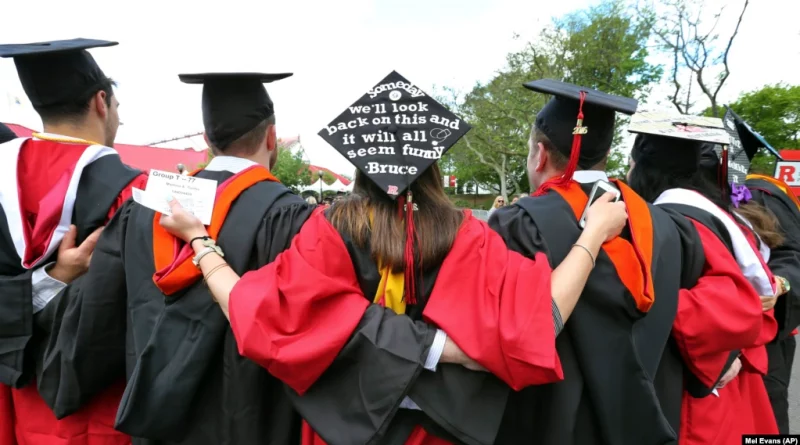Goodbye, credit!
Goodbye, credit!
President Biden announced a $10,000 write-off on federal student loan debt for those earning less than $125,000 a year, and up to $20,000 for educational grant holders.
Connell Fullenkamp, a professor of economics and finance at Duke University, believes that “this is a very large amount of money that will really help millions of adults who have unpaid student loans, this measure will financially support millions of Americans. Plus, if you received a federal grant while you were in school as part of financial aid, indicating that you’re from a low-income population, then you can be forgiven up to $20,000. So the administration is trying to help the low-income population even more.”
Many critics, particularly Republicans, have greeted the news with a great deal of skepticism, saying that the debts of persistent non-payers will now fall on the shoulders of responsible taxpayers. In fact, most pay their loans regularly, but often the financial burden has not diminished over the years.
Erin McHale recounts her situation, “I started school in 2007, and in 2011 right after, I went to graduate school and finished it in a year, hoping my debt would be less. Since then, since 2012, I’ve paid rigorously. Ten years later, I owe more money than when I borrowed. I was given a $175,000 loan based on my and my parents’ income. That amount is now eight dollars more than it was originally. I’m paying over a thousand dollars a month, based on my income already. However, that doesn’t even pay off the interest on the loan. If the payment doesn’t pay off the interest, it is added to the loan, which increases it. So you end up paying a lot more money. All of my loans are federal loans. They take your income tax from last year and then calculate your payment based on what they think you can pay, it used to be 10%. It looks like with the new legislation it will be reduced to five percent.”
According to the girl, after 124 (one hundred and twenty-four) on-time payments totaling $130,000, not only did Erin default on some of her loan, but the amount she owed increased. After Erin wrote about it on Facebook, her post went viral, being shared by over 100,000 people. Connell Fullenkamp, a professor of economics and finance, says that unlike Erin, many people stopped paying their student loans during the pandemic, and the moratorium remains in effect until the end of this year.
“The moratorium on student loans was put in place as an emergency measure taken during the pandemic. Because of the surge in unemployment that occurred at the beginning of the pandemic, many people lost their jobs, lost income and were unable to pay off student debt. So the administration put in place a moratorium where people could temporarily not repay their student loans. I’m sure there are people who are struggling to pay off these debts, for them it would be a welcome relief. But there are also a lot of people who could pay off their student loans, but won’t. Because of that, a lot of people are not happy. There are other ways that the administration could specifically help a certain group of people who are really struggling to pay. For example, still student loans can’t be forgiven in personal bankruptcy. The administration could take this step and allow student loan forgiveness as part of bankruptcy so that people who are really in need and can’t pay their debts can repay or carry them over through personal bankruptcy proceedings,” Connell Fullenkamp said.
According to the expert, forgiving some of the student debt, albeit a costly measure costing hundreds of billions of dollars, would not affect the inflation rate.
“I don’t think this measure will affect inflation, in part because people have already stopped paying off their student loans because of the moratorium, which means they’ve already changed their spending behavior. So I don’t think it’s going to affect inflation much,” the economics and finance professor added. Erin McHale also thinks the measure won’t make a crucial difference: “I don’t think there will be a huge difference for people with a lot of debt. I think we need to limit interest rates on loans and make higher education affordable. It’s important for the future of our young people. My stepdaughter will be going to college in a few years, and I don’t want her to be in this desperate situation with a loan. This is not a solution, you need to heal the wound, not try to cover it up with a Band-Aid.”
